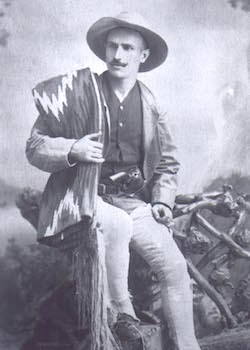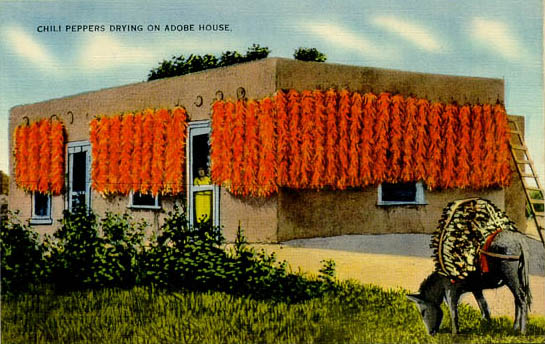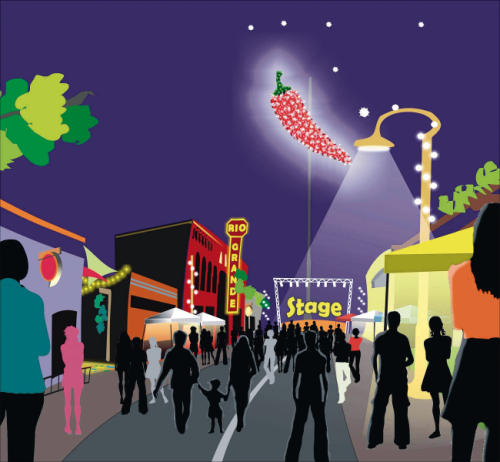
Charles Fletcher Lummis
When I found this quote by searching Google Books, I immediately copied it into my archives. It’s from Charles Fletcher Lummis, in A Tramp Across the Continent, 1892. I’ve included a brief biographical note after the quote.
Just at sunset we came to the two houses which comprised Carnöe, and were hospitably taken in by the poor Mexican at the second. I shall always remember Ramón Arrera, the first Mexican in whose house I began to understand the universal hospitality of these simple folk — both for his courtesy and for a very funny acquaintance I found there. You may be sure Shadow and I were ravenous by this time; and the prospect of appeasing our appetites looked to me very slender. This fear was confirmed when Señor Arrera led me to the kitchen for supper. Upon the lonely-looking table was only a cup of coffee, a dry tortilla (the everlasting unleavened cakes, cooked on a hot stone), and a smoking platter of apparent stewed tomatoes. Now if there is anything which does not appeal to my stomach it is stewed tomatoes; but I was too hungry to be fastidious. There was nothing wherewith to eat except an enormous iron spoon, and with starving and unseemly haste I ladled a liberal supply from the platter to my plate and swallowed the first big spoonful at a gulp. And then I sprang up with a howl of pain and terror, fully convinced that these “treacherous Mexicans” had assassinated me by quick poison—for I had very ignorant and silly notions in those days about Mexicans, as most of us are taught by superficial travelers who do not know one of the kindliest races in the world. My mouth and throat were consumed with living fire, and my stomach was a pit of boiling torture. I snatched the cup of hot coffee and swallowed half its contents–which aggravated my distress ten-fold, as any of you will understand who may try the experiment. I rushed from the house and plunged into a snowbank, biting the snow to quench that horrible inner fire. Poor Arrera followed me in astonishment, but smothering his laughter. What was the matter with the señor? I came very near answering with my six-shooter, but his sincerity was plain, and I listened to him. Poison? No, indeed, senor. That was only chile colorado, chile con carne, which liked to the Mexicans mucho — and to many Americanos tambien. And so it was — only the universal red pepper of the Southwest, red pepper ground coarse and stewed with little bits of meat; an ounce or so of meat to a pint of the reddest, fiercest, most quenchless red pepper you ever dreamed of! I let him lead me back to the house, but with no more thought of eating. I felt inwardly raw from lips to waist, and great tears rolled down my cheeks for hours.
Charles Fletcher Lummis (1859-1928), almost always attired in his trademark well-worn, dark green, Spanish-style corduroy suit, soiled sombrero, and red Navajo sash, was one of the most famous and colorful personalities of his day as a book author, magazine editor, archaeologist, preserver of Spanish missions, advisor to President Theodore Roosevelt and a crusader for civil rights for Native Americans, Hispanics and other minority groups. In this tale, Lummis is in New Mexico, still a U.S. territory at the time. When he mentions “Carnöe,” he is referring to the old name of Tijeras Canyon near Albuquerque, San Miguel de Carnué.












